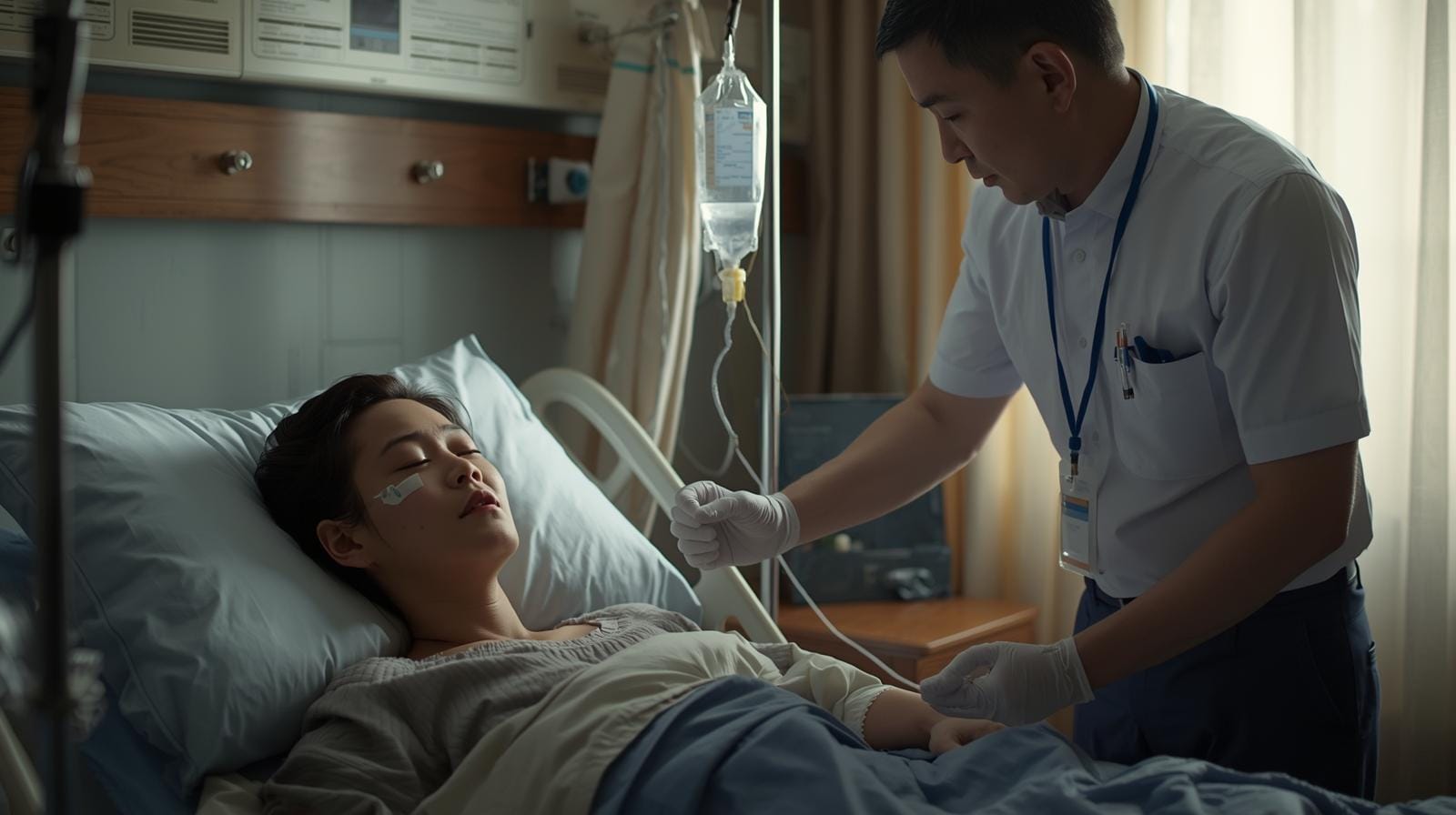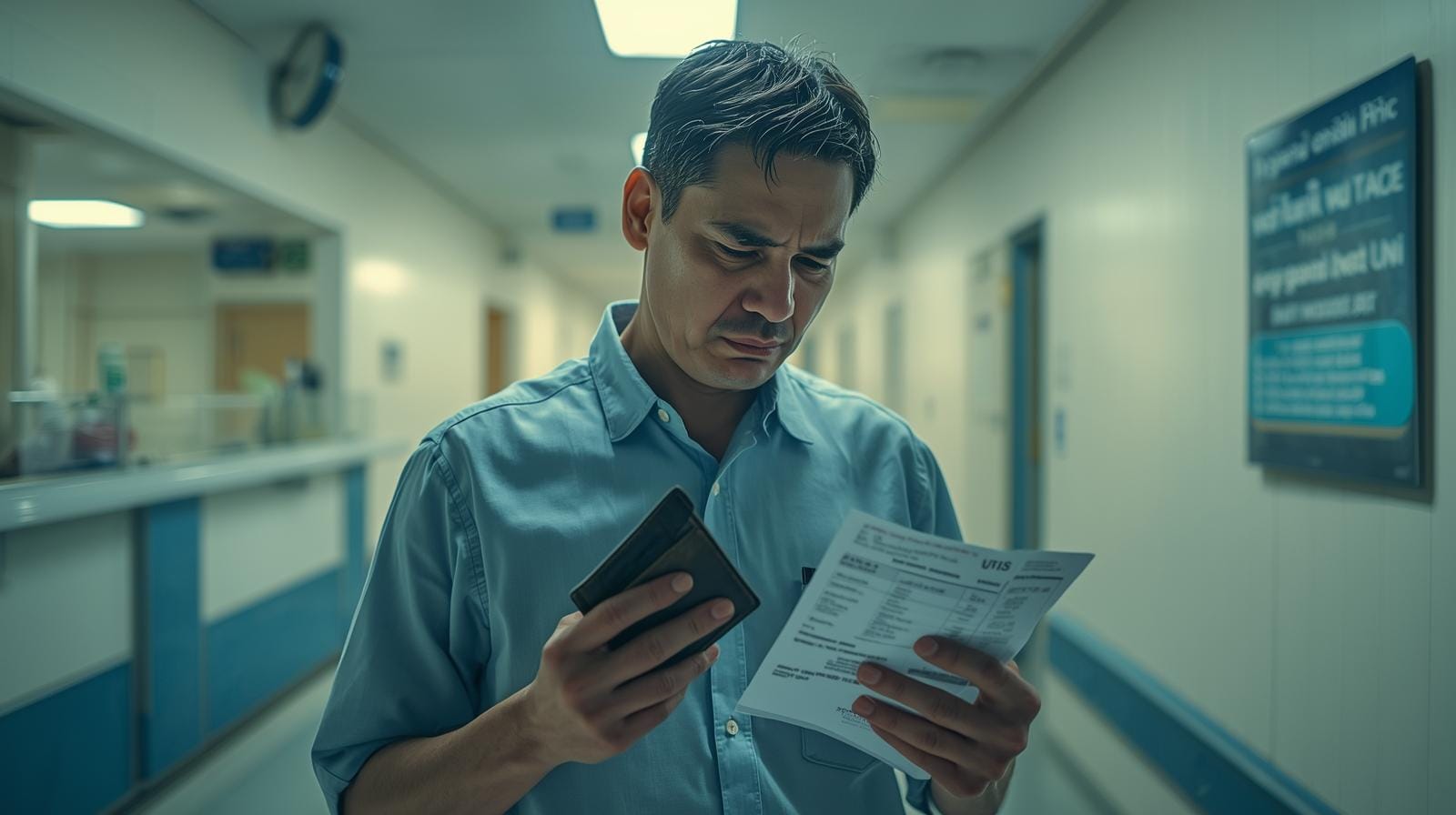Thailand’s Dengue Dilemma: Health vs. Hospital Bill
Picture this: It’s the height of monsoon season in Thailand. You wake up drenched in sweat, joints aching as if your bones might crack. The telltale fever of dengue has arrived. A hospital visit seems prudent—but then you catch yourself hesitating. In the back of your mind, a little voice whispers about the cost. Hospital bills in Thailand, especially for foreigners, can be daunting. Do you really need to go in, or can you ride this out at home and save a few thousand baht? It’s a moment of dangerous calculation many expats and locals face, balancing their health against their wallet. And it’s more common than you might think.
Skipping the hospital to save money might spare your wallet today, but it could cost your life tomorrow.
What starts as a seemingly mild illness can deceive even the savviest among us. Dengue fever has a notorious nickname—“breakbone fever”—hinting at the misery it inflicts with high fevers, crushing headaches, and pain that grips every muscle. Early on, it can feel like a bad flu. This false sense of familiarity feeds the gamble: you tell yourself plenty of rest, fluids, and paracetamol will do the trick. After all, why spend on a hospital if you can tough it out? But dengue is no ordinary flu. In Thailand’s tropical climate, it’s an infection that can turn on a dime, especially if you’re unlucky enough to get a severe strain. One moment you’re managing at home; the next, you could be in freefall, your blood pressure dropping as the virus kicks into a life-threatening gear. Suddenly, the money you saved means nothing in the face of an emergency ambulance ride.

Symptoms Escalate Quickly: Why Early Dengue Care Saves Lives
Content: Dengue fever is a master of disguise and timing. For the first few days, you might manage the 39°C fever and think you’re over the worst. Then comes the critical phase—a 48-hour window where dengue shows its true colors. Your fever might actually subside, lulling you into thinking you’re getting better. In reality, this is when the virus can wreak the most havoc: plasma starts leaking from your blood vessels, your blood pressure can plunge, and organs come under threat. It’s in these hours that dengue turns from uncomfortable to deadly. Without medical supervision, a patient can slip into shock from internal bleeding or fluid loss before they even realize what’s happening.
Early hospital care isn’t just a nice-to-have—it’s often the difference between a rough week in bed and a fight for survival. Doctors in Thai hospitals are trained to spot “warning signs” like sharp abdominal pains, persistent vomiting, or bleeding gums that signal severe dengue. Hooked up to an IV in a Bangkok ER, you’d get careful fluid management, blood tests, and constant monitoring. These interventions can catch the progression before it crosses the point of no return. The sobering truth is that severe dengue can kill. In fact, an estimated 0.5–5% of dengue infections will progress to the severe form, and without proper treatment the fatality rate may exceed 20%. That’s a one-in-five chance of death if you roll the dice on skipping care. With timely medical support, however, the risk of dying drops to well under 1%. It’s hard to put a price on those odds.
“Dengue won’t wait for payday. Early treatment can mean the difference between a week of misery and the loss of a lifetime of tomorrows.”
Catching dengue early also means a far smoother recovery. Patients who receive hospital care during that critical window often bounce back in a matter of days once the fever breaks and fluids stabilize. By contrast, those who delay until things get dire face longer hospital stays, tougher recoveries, or worse. The virus doesn’t care if you’re trying to save money—hesitation gives it the upper hand. And when you’re alone in a foreign country, far from the familiar comforts of home, that’s not a situation you want to gamble on. Remember, dengue is dubbed a tropical menace for a reason: it thrives in our environment, but it can be tamed with proper medical attention. The key is getting that help before it’s too late.

The True Cost of “Toughing It Out”
Content: If the health risks alone aren’t convincing, consider this: dengue doesn’t just hit your body; it can wallop your bank account too. Ironically, many people avoid the hospital to save money, only to end up with higher costs—both financial and personal—down the line. Let’s talk baht and cents. Thailand is celebrated for its affordable cost of living, but that affordability ends sharply at the doors of a private hospital. Walk into a top-tier Bangkok hospital with a dengue fever and no insurance, and you may be asked for a hefty deposit up front. It’s not pocket change either—private hospitals often demand between ฿50,000 and ฿200,000 (US $1,500–$6,000) as an initial paymentthethaiger.com before they’ll even begin treatment. That’s the reality: world-class care, but pay first or no service.
For someone trying to pinch pennies, those numbers are terrifying. You might be sitting at home, thermometer in one hand and calculator in the other, thinking: Can I afford to get any sicker? The average hospital stay for dengue fever in a private facility can cost up to around $2,500 (over ฿80,000), and that’s assuming you don’t need intensive care. Throw in complications—oxygen support, blood transfusions, extra days under observation—and the bill climbs higher. Meanwhile, the clock ticks on your condition. Every hour spent deliberating is an hour the virus has to dig in deeper.
“One hospital visit can cost more than an entire holiday—yet a missed hospital visit can cost you everything.”
There’s a cruel paradox here. The more you hesitate out of fear of a big bill, the more likely you are to get that big bill. By the time a severely dehydrated or hemorrhaging dengue patient drags themselves to A&E, they’re often in worse shape, requiring more intensive interventions and a longer stay. That’s a bigger expense than if they’d gone early for basic monitoring and IV fluids. Not to mention lost income from days or weeks of prolonged recovery. And for expats or travelers, there’s another layer: public hospitals in Thailand are much cheaper but can be crowded, Thai-language environments with long waits. Many foreigners feel they have little choice but to opt for pricier private care to get the comfort of English-speaking staff and prompt attention. Without insurance, that comfort comes at a premium. It’s no wonder some take their chances at home despite the risks. But as we’ve seen, playing chicken with dengue fever is a high-stakes game—one you don’t want to lose.

Health Insurance: Your Safety Net in the Dengue Fight
Content: So, how do we break this vicious cycle of hesitation and risk? The answer, in a word, is preparation. That means arming yourself with knowledge—and, for many, a good health insurance plan. Think of insurance as the safety net that lets you focus on getting well instead of tallying costs. With the right coverage, the calculus changes completely: you don’t think twice about going to the hospital because you’re not footing the entire bill. Many expats in Thailand have learned this the hard way, which is why they insist that comprehensive health insurance is worth every baht. In fact, Thailand’s private hospitals are well accustomed to direct billing arrangements with international insurers. Present a valid insurance card, and that intimidating deposit demand can vanish—your insurer gets the call, not your credit card.
It’s not just about money, either. Knowing you’re covered brings peace of mind that is hard to quantify. If you’re running a high fever at 2 AM in a Chiang Mai guesthouse, you shouldn’t be lying there wondering if you can afford care. Insurance removes that doubt. For example, if you carry an expat health policy from a reputable provider, it will typically cover dengue fever treatment in full. Some plans even cover preventive measures like vaccines and include emergency evacuation, just in case. Importantly, having insurance means hospitals treat you faster and better. The sad reality is that without proof of payment, some facilities may delay critical treatments or transfer you to a public ward. On the flip side, with insurance, you’re a VIP: paperwork is handled, and doctors can do what they need to do immediately.
A solid insurance plan turns a life-threatening dilemma into a manageable detour—you focus on recovery while your insurer handles the rest.
The Thai government, for its part, has been nudging everyone toward this kind of preparedness. Certain long-stay visas now even require applicants to show proof of hefty health insurance coverage, acknowledging that serious illnesses like dengue shouldn’t bankrupt patients or overwhelm public hospitals. And consider the bigger picture: Thailand has recorded over 12,000 dengue cases and 16 deaths in just the first half of 2025. Dengue isn’t a one-in-a-million event; it’s a yearly visitor at our door. With odds like that, having a financial safety net isn’t just a personal choice—it borders on necessity. After all, we buy insurance hoping never to use it. But in a place where mosquitoes carry disease in their bite, that hope is often tested. When dengue comes calling, you’ll be glad to have a shield between you and the worst-case scenario.

Health Over Wealth: Quiet Lessons from a Dengue Close-Call
Content: In the end, a brush with dengue fever can teach a lesson that resonates far beyond this tropical illness. It reminds us that health is the one investment that truly pays off. The irony is not lost on those who have survived a dengue scare: you can scrimp on many things in Thailand—street food instead of fancy restaurants, a condo one stop further from downtown—but cutting corners on healthcare is a false economy. The memory of high fevers and hospital beds has a way of putting bank balances in perspective. Surviving dengue (or any serious ailment) often leaves people with a new resolve to put life over budget. It’s a reflective, almost spiritual shift in priorities. The next time that mosquito bites, you’re not going to weigh the baht in your pocket against the beat of your heart—you’ll simply do what needs to be done. And if that means an ER trip, so be it.
“At day’s end, no saved stack of cash ever feels as good as being healthy enough to enjoy tomorrow.”
Thailand, for all its appeal as an affordable paradise, presents unique challenges that force us to confront what we value most. Dengue fever is just one of them, a tiny mosquito-borne intruder that asks a very big question: What price do you put on your life? For those who have been through it, the answer tends to crystallize clearly afterward. You realize that the real luxury isn’t dodging a hospital bill—it’s waking up in the morning feeling alive and well, hearing the birds over the Chao Phraya River or the buzz of a Bangkok street, knowing you’ve made it through. And maybe you’ve got a scar on your arm from an IV drip or a story to tell about that week you danced with dengue. But you’re still here, and life moves on—slightly wiser, a touch more cautious, and perhaps quietly confident that you’ve learned when not to worry about money. After all, there are more adventures ahead, and they’re best met with a healthy body and an easy mind. The rest? It’s just numbers.

If you found this article valuable, consider subscribing to The Thailand Advisor for free insights and updates.
Still stuck in 60-day cycles?
Turn short stays into a 5-year lifestyle with the Destination Thailand Visa — built for digital nomads, remote professionals, and global citizens ready to call Thailand home.
✅ Work online legally
✅ Stay without border runs
✅ Enjoy full-year living flexibility

Still juggling border runs or short-term visas?
Secure 10 years of certainty with the Long-Term Resident Visa (LTR) — designed for investors, executives, and global citizens who want to anchor their lives and assets in Thailand.
✅ Own property and invest with confidence
✅ Bring family under one stable visa
✅ Enjoy global tax efficiency and long-term peace of mind











